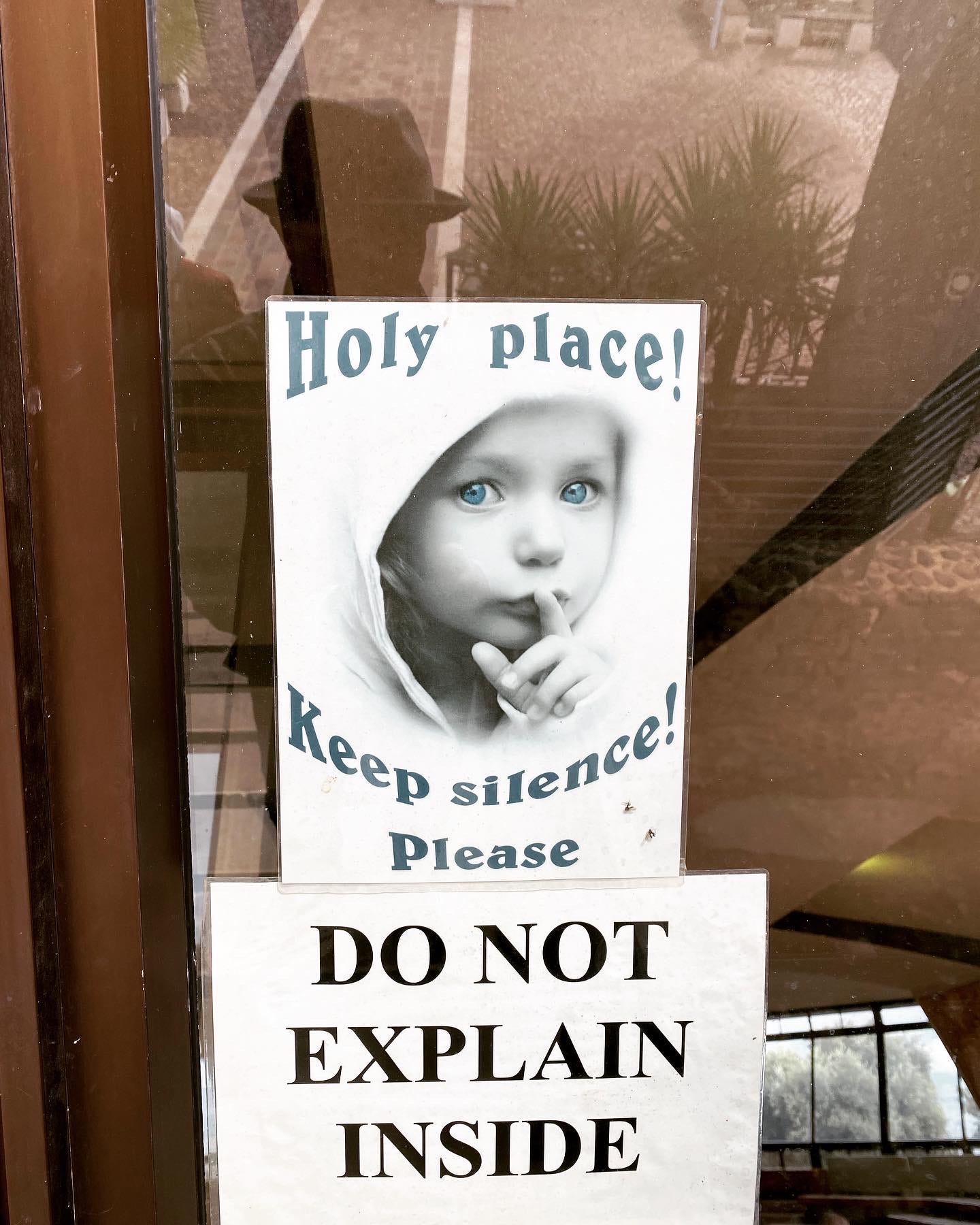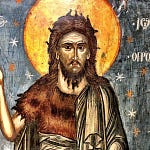Psalm 23
My first funeral sermon two decades ago flopped. "It didn't sound like you knew him at all," a worshipper told me on the way out of the funeral home chapel. "Uh, I didn't know him at all," I replied. I was just a student. I didn't know then— they don't warn you in seminary— that most lay people consider it the mark of a good funeral sermon when the preacher sounds like he knows the deceased. When it comes to funerals, lay people don't usually judge whether I've proclaimed the Gospel or done a good job unpacking the scripture text or pointing to the promise of Cross and Resurrection. For services of death and resurrection, it's a good sermon only if the gathered can shake my hand at the door and say, "It sounded like you really knew her” or "You really captured him."
Whenever one of the flock is lost, most people don't care whether or not the preacher speaks of the Shepherd or proclaims that the Shepherd is good. Whenever one of the flock is lost, most people want to hear about the one lost sheep not the singular Shepherd. They want to be assured that the preacher knows the person whom they've lost. They don't think they need to be reassured that the lost member of the flock is known by the Shepherd.
It’s only fifty-five words, but I’d wager Psalm 23 is the most beloved— certainly it’s the most familiar— text in the entire Bible. “We cling to life through it,” my former teacher Ellen Charry says, “when the angel of death stalks our path.” The metaphor at the heart of the twenty-third psalm is an image that recurs throughout scripture. Fully half of the books of the Bible liken God’s relationship to us to that of a shepherd and his flock. Jacob, who knew better than most what it means to wander and stray, is the first person in scripture to call God his shepherd. John frames his entire Gospel around the metaphor, beginning with John the Baptist’s acclamation “Behold, the lamb of God who takes away the sins of the world” and ending with the Risen Christ commissioning the formerly lost sheep, Peter, as a shepherd. The very reason the image of God as Shepherd is such a refrain in scripture perhaps makes its cherished status somewhat ironic. Chances are, you’ve heard these lines about “thy rod and thy staff” recited or prayed or sung so many times in worship you no longer hear the oddity of Psalm 23 or the offensiveness of it.
The Lord is my Shepherd.
It’s not “The Lord is my Guide; I shall not fail to follow his way.”
It isn’t “The Lord is my Teacher; I shall not disobey.”
Nor is it “The Lord is my Guru; I shall not ignore his wisdom.”
The Lord as our Life Coach casts us in a more flattering position.
But the Lord as our Shepherd?
To profess that the Lord is your shepherd is to confess that you are a sheep. Sigmund Freud was correct; sheep are lame. Sheep most often appear in scripture as hapless dolts. Even when they end up on the winning side of the divide, as in Jesus’s yarn in Matthew 25, they come off as dumb as rocks, “Lord, when was it that we saw you hungry and fed you?” To profess that God is your Shepherd is to confess that you are no more capable or impressive than an animal who is easily and happily domesticated for food.
Less familiar than Psalm 23 is the forty-fourth psalm that Paul quotes in his Epistle to the Romans, “You have made us like sheep for slaughter, and have scattered us among the nations…Because of you we are being killed all day long, and accounted as sheep for the slaughter.” Translation: Clarice Starling notwithstanding, sheep are such stupid, helpless, self-involved animals that they are blissfully and absolutely ignorant of their surroundings, incapable of sensing danger and thus easily, happily led to their own slaughter.
Scripture says, “That’s you.”
Which is to say, sheep need a shepherd. As Ellen Charry writes, the frequency of the shepherding motif in scripture owes less to Israel’s semi-nomadic origins and more to their lived experience that God’s people need to be led, cared for, and helped by someone more intelligent, able, and sophisticated than oneself.
Sheep are stubborn. Sheep wander. Sheep get lost. Sheep fall into valleys. Sheep are dependent totally on their shepherd. Sheep need to be led and guided and protected by their shepherd. The passive voice there says everything you need to know. There aren't any stories, or epics, or legends called Dances with Lambs. There’s no Crouching Tiger, Hidden Sheep. No, scripture makes the point over and again, Old Testament and New, sheep are stupid. By themselves, sheep are lunch for wolves. When sheep wander and get lost in the wilderness what do they do? They bleat as loud as they can; they might as well be wearing a dinner bell around their necks.
To hear that God is your Shepherd is to be told that you are a sheep. And to hear they you are no better than a sheep is offensive for us who rate our worth by our resumes. Not only are sheep weak and stubborn and easily led astray, they're completely useless. Sheep aren't like other animals. Sheep aren't like asses. Sheep don't do any work by which they merit their worth. Sheep don't bear a burden like mules do. Sheep don't pull a plow like oxen do. Sheep don't lead a wagon like horses do. Even goats do work by which they earn their value. Even goats graze down briars and thickets and earn their worth. The only real work— if you can call it work— the only real work a sheep performs is listening to the Shepherd's voice.
If you measure animals' worth by the work they perform, sheep are useless and, thus, worthless. Unlike other animals, the value of a lamb is intrinsic to the lamb. In its lamb-ness. Its worth isn't in the work it does; its worth is in who it is as the creature the Creator made it to be. Its worth is its wool and its meat.
So, Psalm 23 is an odd, offensive song to hear in this season of Resurrection. Aren't we supposed to respond to the news that God has raised Jesus Christ from the dead by doing and saying everything that Jesus did and said? Aren't we supposed to earn this Easter gift by living like the Lamb instead of going on like a goat, loving our neighbor as much as we love ourselves, just as God, when he became one of us, loved his neighbors? Does God really need to remind us we’re no more impressive than a dumb sheep so soon after he raised Jesus from the dead?
In the Gospel of Matthew, Jesus spins a yarn about a single lost sheep who wanders off from the flock of ninety-nine. We forget how the parable of the lost sheep is Jesus's way of responding to the disciples's attempts at elbowing each other out of the way in terms of importance. The parable of the lost sheep is Christ’s answer to their question, "Who is the greatest in the house of the Lord?" Notice that Jesus doesn't answer their question about their worth in the Kingdom with an exhortation about the work they must do. Jesus doesn't tell them the greatest in the Kingdom are those who sell all their possessions and give the money to the poor. Jesus doesn't tell them the greatest in the Kingdom are those who do the things that Jesus did, those who love their enemies and turn the other cheek and clothe the naked. No, Jesus answers with an image of a sheep who actively accomplishes absolutely nothing. The sheep in Jesus's story is nothing but the passive recipient of the Shepherd's finding.
The parable is an odd way to answer a question about greatness because you don't need to be a ranch hand to know that a lost sheep is a dead sheep just as surely as a lost coin is a dead asset. How impressive can the House of the Lord be, after all, if the only ticket you need for greatness in it— much less for admission— is your lostness? Not only is the parable an odd way to answer a question about worth, the parable is just as offensive as the psalm because the "Parable of the Lost Sheep" (that's what the header in my Bible calls it) the "Parable of the Lost Sheep" isn't really about the sheep who gets lost at all. The only verb the sheep gets in the parable is getting lost. All the other verbs belong to the Shepherd. The sheep doesn't search out the flock. The sheep doesn't scramble out of a thicket and wander back to the fold. The sheep doesn't even bah-bah-bah until its voice is heard by the Shepherd. And once it's found, the sheep doesn't even so much as say its sorry for getting itself lost.
We love the parable where Jesus the Reckless Irresponsible Shepherd leaves the ninety-nine to search out the lamb whose lostness will surely soon enough make him lunch for wolves. But we seldom stop to appreciate what it says about us that we are all that single sheep. We think the story's supposed to be about the sheep, lost from its flock, but it's about the Shepherd. It's not about the work the sheep does to get itself to a findable place. It's about the Shepherd's work of finding. It's about the Shepherd's gracious and saving determination to rescue his sheep from death. The only verb the sheep gets in the parable is getting lost, which is to say, the only "work" the sheep does in the parable is to know that, apart from the gracious folly of the Shepherd to find him, death has the last word.
Just like the Shepherd in the parable, God gets all the good verbs in the Easter story.
He bore our sins in his body on the tree.
He died for sins once for all, the just for the unjust, so that he might bring us to himself.
God raised Jesus Christ from the dead.
Just like God at Easter, the Shepherd in Jesus’s story gets all the good verbs. The Shepherd puts the lost sheep on his shoulders and carries it back to his house and calls together his friends and his family and his neighbors and, like a fatted-calf-killing Prodigal Father, says: "Rejoice with me, for I have found my lost sheep." As if it's our sins and not our goodness, our wretchedness and not our worthwhile work, that most commend us to the grace of God.
The Shepherd gets all the verbs.
The Shepherd takes care of the sheep’s every need.
The Shepherd is the Intelligence who knows the sheep’s true need and the Power who is able to bring it to pass.
Last Wednesday, I stopped by the home of Freda Hill. If you didn’t know Freda, let’s just say a good bit of the makeup stains on my stoles and the lipstick on my collars are from her cheeks and lips. Before the pandemic, Freda once expressed the desire to take the cardboard, directional cutout of me in the atrium home with her. When I asked why she wanted to take a life sized cutout of me home with her, her answer made me blush. Let’s just say she unanswered in the sort of unfiltered freedom that only old age allows. That and she clearly missed her deceased husband.
I was heading to a conference in Manhattan on Thursday morning and I knew Freda was in hospice so I made sure I stopped to see her on Wednesday evening. Save for Jesus, the death expectancy rate remains damn near one hundred percent. For the rest of us life is made up of minutes as much as its made of moments, and last week I knew Freda’s time was short. She was lying in a shiny stainless steel hospital bed in front of the fireplace in her living room. Her breathing was shallow and raspy. Her eyes were closed to the world. But for the hospice worker who lingered in the threshold between rooms, her head covered in a hijab, she was alone. None of the people in the pictures on the mantle and side tables were present with her. Every family is complicated, I thought to myself, but some families are incomprehensible apart from the promise of grace and the hope of a final, healing resurrection.
Freda was unresponsive, or so I thought.
When I bent over and spoke loudly into her ear, reminding her of the church who remembered her in their prayers, of the God who loved her from before the foundation of the world, and of the Lamb whose red blood rendered her sins as white as snow— when I gave voice to the gospel in her ear, she reached out her hand as though grasping. Sure, it simply could’ve been the last blank, agitated jerks of the dying. I chose to think differently. I took her hand in my mind and, possibly imputing to her a memory that was no longer there, I prayed two prayers with her and for her and over her, the LORD’s Prayer followed by the twenty-third psalm.
She didn’t— couldn’t— pray it with me.
Not that it matters.
The Shepherd gets all the good, important verbs anyway.
Almost a year ago, I visited Freda in the hospital. A dizzy spell in the narthex after worship one warm spring Sunday landed her in the ER where she learned she had cancer. A different caregiver was her only companion to chew on the news of inevitability. She talked. I prayed. We hugged. As I let go of her and turned to leave, she reiterated a point I’d heard her make several times, “If I didn’t have my church, I’d have no one.” To be honest, I didn’t think much of it at the time. People blow all kinds of pieties up a pastor’s ass. But I realized this week that she meant it. Indeed she was deadly serious.
If she didn’t have you all, the church, she would have had no one.
Last Wednesday, after I left her and drove home, certain she was soon leaving this side of the veil, it struck me that this was but another one of the verbs our Shepherd had worked for a particular member of his flock named Freda. Even more than a place in the House of the LORD in the life everlasting, the Good Shepherd had gifted her a community in this life— friends called saints (who are really sinners) and a family not of blood but by baptism.
The Shepherd really does do everything that ultimately matters. Done for you— that’s the Gospel. The Gospel’s not Do this for God.
Done for you.
Sheep are strange.
They can't carry a Christ into town to shouts of Hosanna. They can't bear a Samaritan's friend to safety. The only "work" sheep do is to trust the Shepherd's voice. And as God's feeble flock, that's our only work to do too. No matter what colors with which we drape the altar, we're never far from the valley of the shadow of Death. Therefore, I invite you to trust the good news proclaimed by the saints in the Book of Revelation today, the good news that the blood of the Lamb has rendered yours sins as white as snow. That is, because of his righteousness, you are counted as pure.
Trust not only those sheep we call saints but trust the Shepherd.
Trust the voice of the Shepherd, Jesus Christ, who promises that by his substitution for you, God forgets your sins in the darkness of the grave. Trust the Shepherd's voice when he tells you that his cousin John was right: he is the Lamb who bears away all our sins such that in the House of the Lord, God remembers our iniquities no more. Trust the Shepherd when he promises to you by his cross and his empty grave that in the power of the resurrection he finds us lost to death and he puts us on his shoulders and he carries us back to his friends with rejoicing. Trust the Shepherd when he spins these yarns where there's not a single note of our earning or our merit, not a hint of rewarding the rewardable or saving the salvageable. Trust the Shepherd, for if it's not about our worthiness, there's absolutely no need to worry about our place in the house of the Lord. All that is lost will be found because of his gracious folly to raise the dead to new life.
Trust that our Shepherd— he really is good.
And not only good.
Take Freda as Exhibit A— he really is at work in your life, for you.
And Exhibit B— well, just look. He’s prepared a table for you so that you may find him here, in bread and wine, so that, no matter how far you wander or in what ways you get yourself lost, he’s always as close to you as you are to yourself.
In the name of the Father, and of the Son and of the Holy Spirit, Amen.












